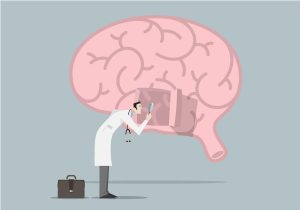
With as many as 5.7 million seniors currently diagnosed with Alzheimer’s disease—a full 10% of the over-65 population—and that number expected to soar to as many as 14 million by the year 2050, the race is on as scientists scramble to find a remedy or at the very least an effective treatment option. And apart from the emotional toll dementia takes on both those diagnosed and their family members, the financial impact is incredible, costing up to $277 billion in 2018 and anticipated to grow to over $1 trillion by 2050.
The Alzheimer’s Drug Discovery Foundation has recently presented its 2017 Alzheimer’s Clinical Trials Report, and the results are very interesting. There are at the present time 126 Alzheimer’s treatments in the clinical stage, specifically to address symptom management of these common effects of Alzheimer’s and dementia:
Additionally, researchers are searching further into the inherent causes of the disease, beyond the common suspected beta-amyloid link. Following are the top forms of interventions being analyzed:
Neuroprotection: Quite a few drugs are showing promising results in protecting against neuron damage and maximizing neuron survival and regeneration.
Genetics: Research that commenced two years ago in exploring epigenetic treatment therapy is now evolving to add a chemotherapy medication to attempt to regulate the expression of certain genes.
Chronic Inflammation: Prior research reports have attempted to link inflammation with Alzheimer’s, but the anti-inflammatories tested proved ineffective. However, more recent research includes newer inflammation-targeting drugs, directed at improving the immune cells and removing toxic proteins.
Repurposed Medications: More affordable and with less testing requirements than new drug development, trials of present medications to test their potency against Alzheimer’s are underway.
Early Intervention: A unique emphasis will be placed on treating patients who display biological markers indicating a heightened chance of developing the disease, although not yet exhibiting symptoms. Even while these trials may involve invasive medical procedures, such as spinal taps, the ability to prevent or at the least slow the progression of Alzheimer's disease may be worth considering.
Midnight Sun Home Care, providers of the best senior personal care Matanuska-Susitna AK has to offer, will continue to monitor clinical trials and any other progress in the journey towards a remedy. For the time being, we are also open to provide specialized, compassionate, and very skilled dementia caregiving for seniors. We begin by preparing a personalized plan of care to address immediate concerns, and then monitor that plan ongoing so that the ideal level of care is always provided as needs change—right in the comfort of home. Contact us at (907) 677-7890 to learn more or schedule a free in-home assessment.